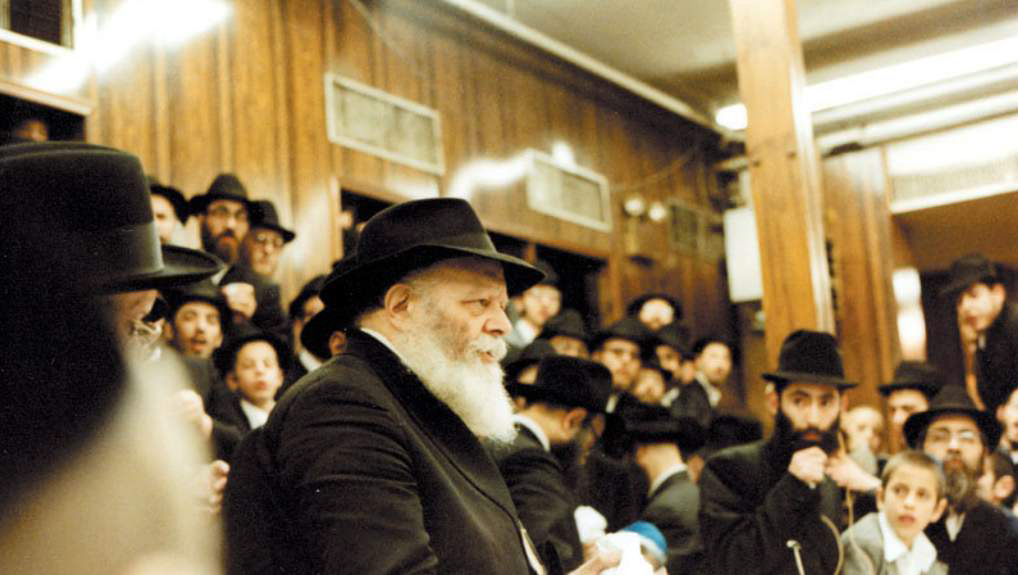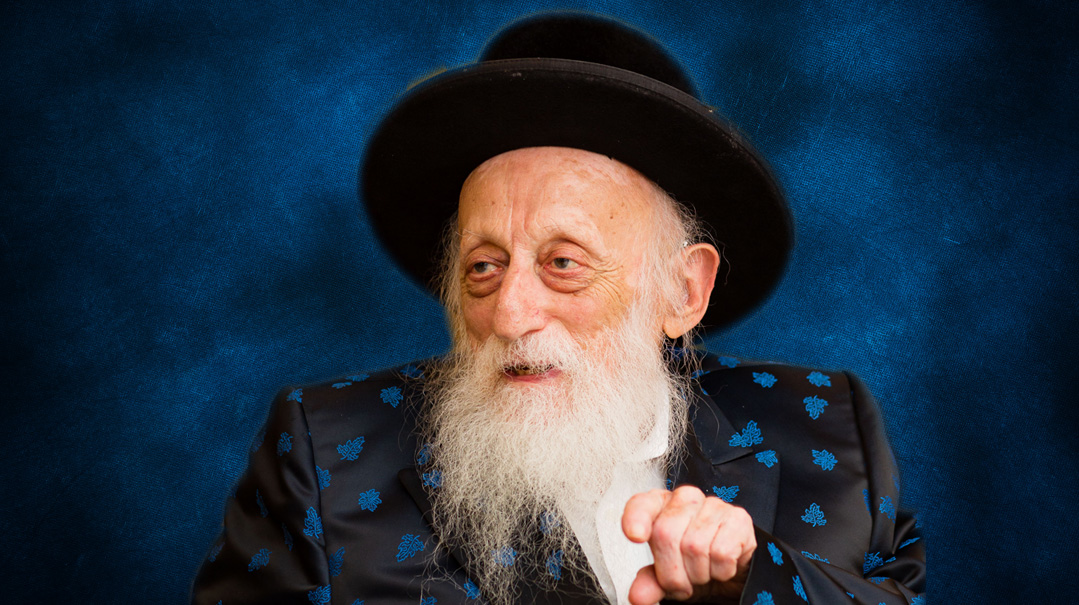Mix & Match
| July 29, 2020Hashem orchestrates elaborate experiences to bring couples together. Eight writers share the Divine imprint upon their match

Deal of a Lifetime
Esther Shaindy Leshkowitz

They’d been deported to Siberia during World War II, father and mother, four daughters and a son. There, they spent cold, bitter years, not knowing if, or when, they’d be freed. They suffered greatly on those barren plains, but they were free now, and they needed a place to live.
The family traveled to Seragina, to Tchapanova, and tried to set down roots, but they couldn’t: sometimes the NKVD made trouble, other times, all the Jews had left, and they didn’t want to remain alone.
So they searched, until they heard of Blodvodskoe, a village near Frunze, capital of Kyrgyzstan. There was a group traveling there, a fellow Jew said, and he told of an abundance of butter and cheese and fresh fruit. There was also a market, an opportunity to make parnassah.
I try to imagine them as they went to that country of valleys and lakes, blue mountains visible in the distance, where the locals eyed their beards and peyos with curiosity. They wondered if they were the only Jews in town. Later, when they purchased food and supplies at the market, they met Jews they had known from before, Jews from Galicia and Poland, and they realized with relief they weren’t alone.
In Blodvodskoe, mostly young adults conducted business at the market, selling all sorts of merchandise. They’d travel to Frunze, where they’d purchase whatever goods they could find — clothing, shoes, soap, leather goods. Then, they’d return to Blodvodskoe and try to sell their goods.
One day the eldest daughter was at the market, when a woman approached her.
“I have a pair of diamond earrings to sell,” the woman said.
The girl had an eye for a deal and realized she’d be foolish to allow this opportunity to slip away, but she had no experience with diamonds, and she didn’t know a fair price, let alone where to begin bargaining.
Coming toward her was a young man she recognized, one of the young Jewish men who had been in Blodvodskoe before her family had arrived. As he approached, she showed him the earrings, and asked if he had any knowledge of diamonds.
He said he did, and offered to help her bargain for a fair price, on condition that he be an equal partner in the deal. She agreed, and they purchased the diamonds.
The only problem was that there was no buyer for the earrings, and after some time, they decided to dissolve their partnership. In order to divide the earrings fairly, they consulted with the girl’s father, who served as an informal rav for the Jews of Blodvodskoe. He examined the earrings and realized they were of unequal quality, one was a beautiful, brilliant stone; the other, cloudy and inferior. Splitting the pair between them wouldn’t be fair.
He looked at his daughter, and he looked at the tall, fine young man. He knew he’d learned in a good yeshivah, and had often thought this man would make a good husband for one of his daughters. He also thought of the medrash, the story of a man who had bought a field and found a buried treasure. “It’s not mine,” said the buyer. “I only purchased a field.”
“It’s not mine either,” said the seller. “I had no knowledge of any treasure.” They sought the king’s counsel, who suggested the son of one marry the daughter of the other, and take the treasure as dowry.
He looked at the two young people before him, his eldest daughter, and this fine young man. “Why don’t you marry,” he said, “and the earrings will belong to you both.”
They didn’t need much time to think, and married soon after, on May 25, 1945. The brilliant diamond was set in an engagement ring, forever a reminder of what brought them together.
Oh, Brother
Chava Roth
When I was turning 24, I went out for a short, no-go of a date with contestant #52; let’s call him Chaim Yankel Roth. We both returned and told the well-known matchmaker, Rabbi Shadchan (not his real name), “Normal person, not a match.”
As serendipity would have it, the following winter, my younger sister Ruchi went out with a young man whom we’ll call Shraga Feivel Roth. Though suitably impressed, both returned and told the well-known matchmaker, Rabbi Shadchan (still not his real name), “Nice person, not a match.”
The next day Ruchi called Rabbi Shadchan back and told him that after sleeping on it, she realized that Shraga Feivel was actually a great idea for her older sister — that would be me. Rabbi Shadchan, after a couple seconds silence, countered, “This is getting mudna. Maybe let’s leave the Roth brothers alone for the Klein sisters. But I have another idea….”
Ruchi was disappointed, and wrote in her journal that night, “Too bad about Roth. This guy should reeeally marry Chavi.”
Life moved on. Ruchi got married that summer, and I gained more advocates looking out for my future bliss. At some point, Ruchi’s new brother-in-law asked her if I’d ever dated Shragie Roth. “Ooooh, Roth! That’s right! Good idea! That was the guy I wanted for her!” Ruchi tried pursuing it, but was unsuccessful in reaching Rabbi Shadchan, and the idea was dropped again.
Come Chanukah, four days before my 25th birthday, and my married sisters got together in Yerushalyim. What else might sisters discuss when I wasn’t around other than my (non-)marital status?
“That’s it!” insisted Leah, my oldest sister. “Chavi’s turning 25 this week, we must have something moving down the pipeline while she’s still 24. Nobody’s leaving this party till we have an idea to work with!” Ruchi threw out the possibility of calling Rabbi Shadchan about “the Roth guy.”
“Hey!” said Leah, surprised. “That’s the guy my neighbor just mentioned to me. Let’s get this redt — now!” She went across the hall and knocked on the door with a phone in hand and the call was made right then and there.
Shraga Feivel’s bemused father told him that his son was redt to “that first Klein sister” — Chavi Klein, age 24. The fellow was a bit hesitant, saying, “She’s already 24. We’re the same age…. And is the other sister married yet? If not, it’s too weird, I won’t go out with this one.”
But the other sister was married, you see, and Shraga Feivel (contestant number #57 and the gold medal winner) went out with Chavi and then got engaged to her (and everyone at the l’chayim knew each other). They got married and had a whole slew of kids and lived happily ever after and are ready to pursue shidduchim for the new crop of Rothlings.
The Never-Ending Story
Malkie Schulman
Kindness comes in all shapes and sizes and who’s to say the bigger one is more lasting or the one that will net you more returns on your investment?
I was 18 and had just returned from a seminary year in Israel. I took a secretarial job at a furniture company in Manhattan. My boss was Mr. Levine*, a frum Jew from Monsey, who was slightly intimidating, but nice. I was working with friends, so it was fun, but my heart was set on going back to Israel.
I asked my rav if I had to inform my boss of my plans, and was told I was required to tell him only after they’d been finalized. So, when they did become final a month later, I let Mr. Levine know I was returning to Israel after Rosh Hashanah. I wanted to work up until my departure, but Mr. Levine said he’d give me two more weeks to work and then I’d have to leave so he could train in somebody new. I was disappointed, although I realized that it made sense.
The next day I happened to find myself alone in the lunchroom with Mr. Levine. He said he knew someone with my unusual family name and wondered if I was related. I told him that my grandparents had lived in Boro Park on 53rd street for many years.
“Aah,” he said. Then he related that when he was a bochur, he and a few friends were my grandparents’ tenants. He still remembered the hot chicken soup my grandmother carried up to him when he was sick. He had kept up with them after he married until they had made aliyah 18 years later. Then he told me that I could remain at the job as long as I wanted. I was relieved and grateful because I really needed that money for my upcoming year in Israel.
I returned to America two years later. One Thursday a friend called and asked if I’d like to spend Shabbos with her at a family in Monsey whose home was always open to guests. “Sure,” I said. Turns out, it was Mr. Levine’s home and when he saw I was one of the guests, he stood up at the Shabbos table and publicly announced how honored he was to be able to return my grandparents’ kindness of years ago by hosting their granddaughter for Shabbos.
Although a dear friend of mine married Mr. Levine’s cousin, I had nothing more to do with him for the next 25 years. However, one day, this same friend told me her cousin (Mr. Levine) was now a widower and looking to remarry, did I know anybody?
I thought of my sister-in-law’s lovely widowed mother who had lost her husband years before, and the shidduch was made. Within a few weeks they were engaged, and got married shortly thereafter. They remained happily married, both of them feeling they had gotten a new lease on life, living part-time in Israel and part-time in America until he passed away two years ago.
I remember telling him at the time of the engagement that I was so grateful that I was able to close the circle and repay him for the kindness he had done for me years ago.
But, now I think, is a circle ever really closed?
I look forward to the next manifestation of this cycle of kindness that began with my grandmother (although who knows? maybe it started even before that) over 60 years ago.
* Name has been changed
Opening Doors
Russi Tendler
In September 2017, the threatening clouds of Hurricane Irma forced many Florida families out of their homes and onto the road to seek shelter. The Atlanta Jewish community readily stepped up to the plate, arranging housing and meals for hundreds of displaced families who had nowhere to go.
The Horvaths were eager to help in whatever way they could. They called an acquaintance from Florida and invited her and her family to come stay with them. Mrs. Gittel Wincelberg promptly agreed; she and her family had already left their home, heading toward relatives who lived up north, but were stuck in terrible traffic.
As the clock ticked and gas stations ran out of gas, they’d realized there was no way they could make it anywhere for Shabbos farther than Georgia, and so they gratefully accepted the Horvath’s invitation.
When the Horvaths informed their family about their soon-to-be-arriving guests, their daughter Adina was hesitant. She’d met Mrs. Wincelberg, who is a shadchan, the year before, but no ideas had materialized from their meeting. Would it be awkward having a shadchan stay at her house?
But it took no time at all before the Horvaths and the Wincelbergs were good friends; sharing a home helped them get to know each other, and they enjoyed each other’s company. A week later, as her family prepared to head back to Florida, Mrs. Wincelberg assured Adina and her mother that she was determined to be the one to find Adina’s shidduch, out of gratitude for all the Horvaths had done for them.
Sure enough, Mrs. Wincelberg thought of the perfect match. Lozzi Kasman, who’d grown up on Ner Israel’s Yeshiva Lane, had attended her father Rabbi Zweig’s yeshivah in Florida for four years. After getting to know Adina during her stay in Atlanta, Mrs. Wincelberg realized that they’d make a wonderful couple.
The Horvaths had been eager to open their hearts and home to Jews in need. Little did they know that they were also opening the doors to another home — the one their daughter would build, in which she’d transmit their values and commitment to the next generation.
Match Made at Gunpoint
As told to Rochel Samet
Johannesburg, South Africa. For a yeshivah bochur from Jerusalem, life in Jo’burg — with its heavy security patrol, CCTV-protected private properties, and lurking dangers — was another planet.
The yeshivah, of course, had a security system in place, but I had an unusual nightly routine: Since I had a side job, I’d take an Uber each evening to a hotel lobby, my preferred workspace, and set up my computer there for a couple of hours.
One night, my Uber app malfunctioned. I was alone, unarmed, with an expensive computer and phone. But this was the heart of Glenhazel, Jo’burg’s main Jewish area, and there was security on the streets.
I decided to brave it.
I made it back, told my friends. Their responses were reassuring: Things have changed, the streets are safe. You can walk around at night, no biggie.
So my routine changed: If I could save money, why not? But apparently, keeping a regular schedule and route, walking with a computer and phone in the dark, was not a great idea.
And I always walked alone.
Until one night. A friend of mine regularly learned with Ben, a local teen, and asked me to take his place for night seder. Ben lived near the hotel where I worked, so I offered to walk him home. The two of us walked the empty streets, the clock creeping towards 10 p.m.
A car drove by slowly from behind, overtook us, turned right.
A minute later, it happened again. Something niggled at my subconscious. The same car…?
We kept walking. The car kept driving. It turned right. And then, a minute later, it appeared again. We noticed, without really noticing we’d noticed. By the time the car had made its fourth circuit, we stopped talking.
Then two things happened. Ben turned to me and said “Something’s dodgy” — and I realized how dark it was: The car’s headlights were switched off.
Ahead was the street corner, with a security guard stationed nearby. But we didn’t have time to make a move.
One man jumped out of the car, brandishing a gun. Two more appeared from the back seat. The driver remained behind, hand on the wheel. We heard a gun being loaded.
Laptop, laptop.
The guys from the back seat grabbed my computer.
Phone, phone.
They barked out single words. Ben threw his phone to the ground. I hesitated — I was carrying three phones, an old one, a new one, and a cheap Israeli cell. Could I get away with handing over the cheap device?
Give me phone!
By the time I made a move, there were hands in my pocket, and three phones added to the loot.
Lie down! Head on the ground! Otherwise I’ll shoot!
I flung myself to the ground. The world spun around. I heard car doors slam. As the criminals drove off, I raised my head, squinted for the license number.
The car had no license plate.
I blacked out.
I came round to see Ben speaking urgently to a Jewish man in a passing car. They called GAP (the security patrol), and within minutes, two huge armored vehicles arrived and sped off after the getaway car.
“You can’t walk back to yeshivah now,” Ben told me. My computer was gone, my phones were gone, and the dark streets were suddenly ominous. I agreed.
That’s how I ended up at Ben’s house. A young foreigner mugged at gunpoint — that’s all Ben’s mother needed to hear. She made arrangements for police reports, lending me a phone, even arranging for trauma counseling to get over the shock. And of course, there were supper invitations, Shabbos meals, and home-away-from-home comforts.
GAP and the police tried to track down the criminals, but we never did get our stolen goods back. A few months later, I took a job assisting the kiruv rabbi in Cape Town, and left Johannesburg — and Ben’s family — behind. Or so I thought.
The shadchan called shortly after. Ben’s mother had been in touch, she said. Ben had a 20-year-old sister…
At the chasunah, the rav spoke about the hashgachah behind every shidduch, and about thanking the shadchanim. But, he added with a wry smile, you’ll be glad to hear that tonight’s shadchanim are nowhere in the vicinity.
Meet You in Mexico
As told to Faigy Peritzman by Chaya Daniels
At 24, I was considered an older single. And teaching in my out-of-town community put me in the local limelight. I was treated to my share of pitying looks, and my students’ parents wanted to know if I’d consider an Irishman, a Scotsman, or a congressman.
I was also redt shidduchim by teachers who’d known me my whole life, and I appreciated all suggestions. Yet now my mother was suggesting a shidduch that came out of left field.
“You know Rivka Grossberg?”
“Not really, and she doesn’t know me, does she?”
“Well, she knows Daddy and me. Anyway, she was at a shabbaton a few weeks ago and…”
I tried not to groan out loud. This shidduch was sounding like one of those, “I know a girl/I know a boy, and guess what? They’re both frum. Great idea!”
Sure enough, my mother hammered the last nail in the suggestion’s coffin. “So, there was another person there who lives in the Midwest. The two of them were talking, and Mrs. Bernwald suggested…”
I tried to tune this out. But my mother can be persuasive. “Give it a chance. What do you have to lose?”
Time? Emotions? Self-confidence? There’s always something to lose in a no-win shidduch suggestion.
It had been a rough summer, dating-wise. I’d spent the summer in Eretz Yisrael hoping for a few suggestions from boys who’d yet to enter the freezer, but hadn’t netted a single date. To make matters worse, my mother had called me in Eretz Yisrael a week before I was set to return, a note of excitement in her voice.
“Remember Gershon Mintzberg? The boy we’ve been trying to get for the last two years? He just said yes! And he’s even willing to wait until next week when you get back!”
I hated bursting my mother’s bubble. “But you know I’m flying straight to Mexico next week. My student Leah’s getting married. She’s only having a handful of girls at her wedding. I can’t let her down.”
“But this Mintzberg boy isn’t going to wait two weeks.”
“If he can wait one week, can’t he wait two?”
Apparently not. Mintzberg said sorry, one more week was way too long in the scheme of a lifetime. After discussing it ad nauseam and consulting our rav, we’d finally decided I should still fly to Mexico.
“You might be missing your bashert,” my mother had sighed. “But it’s your choice.”
“Who knows?” I tried to lighten the mood. “Maybe I’ll meet my bashert in Mexico.”
My mother should have been a navi. Gershon Mintzberg got engaged three weeks later to his 96th girl. So things were glum for a while. Until Rivka Grossman called.
“No, no, and no,” I told my parents. “Rivka knows you, this other woman knows the boy’s parents, neither one of them knows either of us. Plus, the two of them barely know each other! Why don’t you and the boy’s parents go on a date since these shadchanim know you so well?”
Matchmakers, matchmakers, what’s with this match? Tell me again, why is this a catch? You don’t even know me, you don’t know him too. But you all say, he’s perfect for you!
Yet the ultimate Matchmaker was working in Heaven.
Oh, one final glorious bashert detail. On our first date, we discovered we shared mutual travel history. My husband had just spent a week in… Mexico. At a friend’s wedding. And when I visited Leah and looked at her chasunah pictures, sure enough, we were both there.
From the Mouths of Babes
Margie Pensak
The hashgachah in finding my bashert can be traced back to my graduate school days when I was renting a second-floor apartment of a house in the Kensington section of Brooklyn. There were four of us girls splitting the rent, and when Becky, our San Franciscan roommate, decided to go home for the summer, we sought a temporary replacement.
On my commute between school and home on the F-train one day, Hashem orchestrated that I took a seat directly across a former Stern college schoolmate, Shelley Pensak. In urgent need of a replacement, I yelled over the shrieking din of the subway car, “Do you know of a possible substitute roommate?” She did, and referred me to a fellow Scrantonian native, Leah Blatt, a 17-year-old girl who planned on taking a summer course in Brooklyn.
Just two or three weeks after she moved in, Leah proposed (no pun intended) that I go out with Stewie Pensak. This is my recollection of how our conversation went.
“I have a shidduch idea for you.”
“Who?”
“This really nice guy from Scranton. I hardly know him, but I got a ride to New York with him once or twice.”
“You hardly know him and you hardly know me. Why do you think we are meant for each other?”
“Because you look alike.”
“Ha! I’m going to go out with him only because I’m curious to see what the male version of me looks like!”
When I heard the name Pensak, I ascertained with Leah that he was, ironically, Shelley’s brother. I barely knew Shelley; she was in my Yiddish class and one of our only interactions was when our instructor called on the two of us to have a conversation in Yiddish.
When Stewie mentioned to his sister that he was about to date me, she insisted I wasn’t for him. Based on that Yiddish conversation that I initiated about Chabad chassidus, she presumed I was Lubavitch and concluded that we were on totally different hashkafic pages. Fortunately, he told her that since he had already called me to ask me out — yes, that was the norm in those days! — it wouldn’t be menschlich to cancel. The rest is history.
There seems to be a tendency in our family for the very young — and those who don’t know us very well — to redt our shidduchim. My youngest son was matched with his wife by an eight-year-old girl who was so persistent that her parents finally presented the shidduch idea to the couple. What made her think of it? They are both quiet!
You never know what can come forth from the mouths of babes…
Two of a Kind
Rachael Lavon
When Bina Cohen’s 93-year-old grandfather moved to Eretz Yisrael this past Succos, no one had any inkling what the world would look like five months later.
Mr. Kabakow was looking forward to living near his children and enjoying daily visits from grandchildren and great-grandchildren. As February turned to March and the world began its devastating battle against COVID-19, the nursing homes in Eretz Yisrael made the painful decision to close their doors to all visitors, including close family. The move was swift and saved countless precious lives — but it came at a heavy price.
Mr. Kabakow’s short-term memory and hearing had been getting fuzzy for some time, and now the repercussions were serious. Every morning the same painful phone conversation would repeat itself between the elderly man and his children; he would ask why no one was visiting, his children would sadly remind him about the raging pandemic and explain that no visitors were allowed.
The situation was excruciating for everyone.
At 22, Bina Cohen had a lot on her plate. She was in the middle of her schooling and in shidduchim. But the plight of her lonely grandfather was too much to bear. Despite the many naysayers, she saw only one way to go forward. Bina took a COVID test, which came out negative, then isolated herself in her room for two weeks.
“We don’t know how long this will last, Bina!” family members protested. “You’re in the middle of life, in the middle of dating….” But Bina wouldn’t be swayed, her focus was solely on alleviating the pain and loneliness of her grandfather. After two weeks of isolation, she emerged and went straight to the nursing home to be with her grandfather, take care of his needs, and provide the greatest gift of all — the loving presence of family.
The nursing home had a strict policy: Once she entered the home, she couldn’t leave the building. She had no idea how long she’d be there, no idea what opportunities she might miss out on, but that didn’t matter to her — she knew she was doing the right thing.
What she didn’t know was that deep inside the nursing home, there was another special soul. At 25, Shmuel’s life was also on pause while taking care of an elderly resident of the home, but he didn’t stop there. When he realized the nursing home’s usual rav would be unable to enter the building, he sprang to action, arranging the Pesach Seder, making the rounds of Kiddush and Havdalah, and helping the residents with all other spiritual matters, infusing spark and life into a dismal situation.
Bina was impressed with the young man’s devotion and sincerity, and Shmuel was impressed with Bina’s kindness and selflessness.
Outside the nursing home no one would have ever considered Bina and Shmuel a match — they come from very different backgrounds and different parts of the country; their paths simply wouldn’t have crossed. Yet the ultimate Matchmaker found a way to bring them together.
It wasn’t just that they were the only two people under 70 in the building; they recognized in each other a perfect set of shared values that went far deeper than their diverse backgrounds, and after speaking to their families, they began dating.
B’ezras Hashem, their wedding is scheduled for the end of the summer.
(Originally featured in Family First, Issue 703)
Oops! We could not locate your form.





